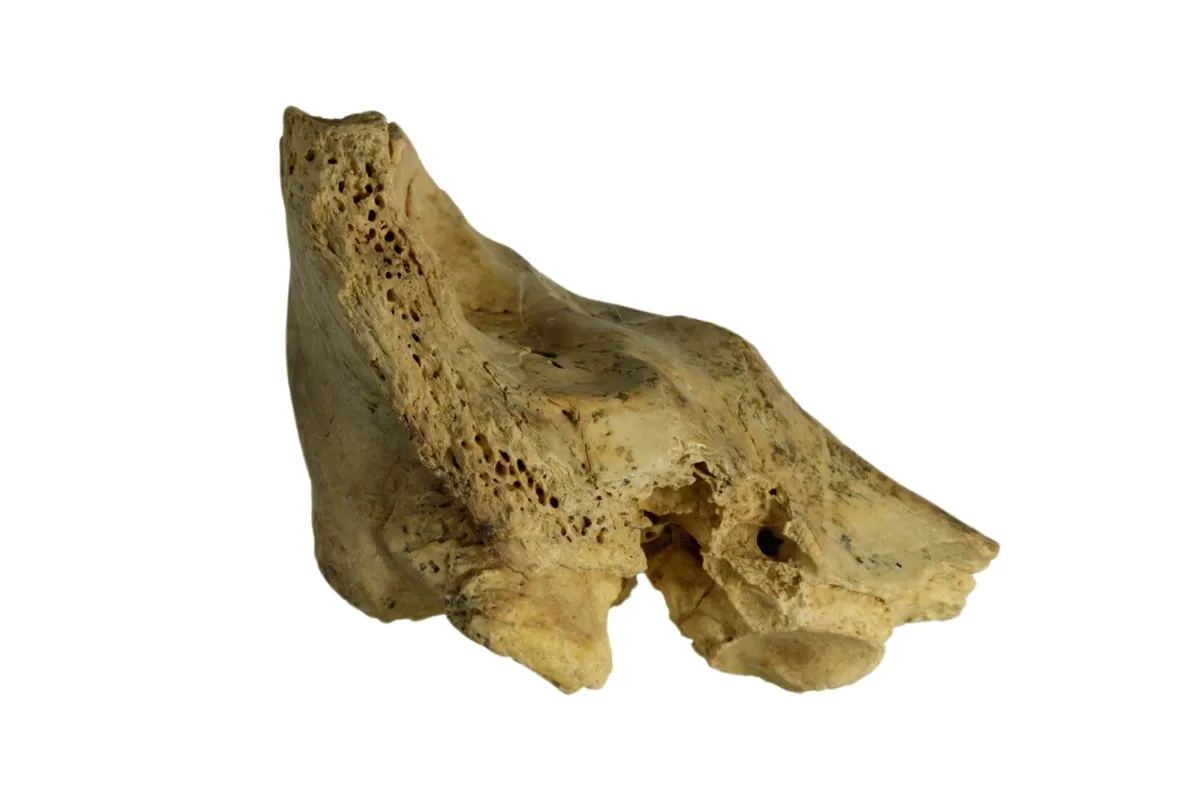First-ever case of Down syndrome found in Neanderthal child
First case of Down syndrome found in a Neanderthal, showing they provided altruistic care for a vulnerable individual.

Anthropologists documented the first case of Downs syndrome in Neanderthals by studying fossils.
Image credit: Science Advances
- A new study reports the first case of Down syndrome in a Neanderthal child as analysed in a fossil.
- The child, named “Tina,” had a congenital pathology of the inner ear associated with Down syndrome, resulting in severe hearing loss and disabling vertigo.
- Tina survived to at least 6 years of age, indicating that she required extensive care from other members of her social group.
- The study suggests that Neanderthals were capable of providing altruistic care and support for a vulnerable member of their social group.
- This finding contradicts previous theories that Neanderthal social care was primarily driven by reciprocal exchange between equals.
- The discovery of Tina’s condition provides evidence of true altruism among Neanderthals, as she would have required assistance without being able to reciprocate.
Source: Binghamton University